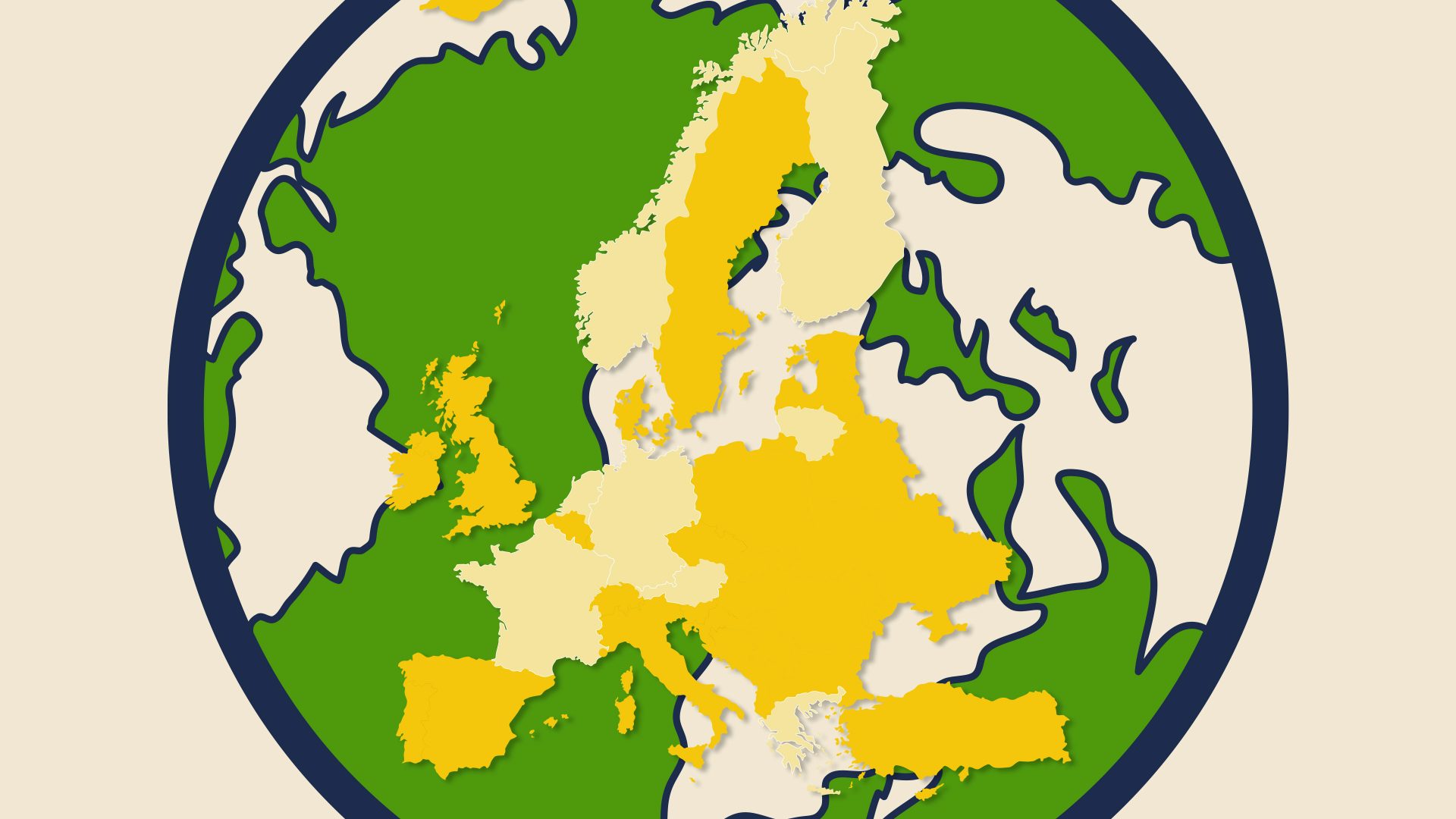NORWAY
Norway is the electric car capital of Europe – in 2020 more than 54% of new-car registrations were electric, with an extra 27% being plug-in hybrid (PHEV) models. Norway is also banning the sale of petrol and diesel cars by 2025 – five years sooner than the UK. As well as being exempt from the country’s 25% VAT rate, electric cars in Norway aren’t subject to road tax, and drivers also benefit from reduced road and ferry tolls, as well as discounted parking.
NETHERLANDS
Oostvoornse Meer, a lake in the south-west Netherlands, has installed a shiny circular island covered in dozens of shimmering solar panels that do something no other panels in the world do – meticulously track and follow the sun as it moves across the sky, to catch as many rays as possible. The installation, named Proteus after the ancient Greek sea god, has a total installed capacity of 73 kilowatt of peak power (kWp). “Floating solar is a rather new [renewable energy] option, but it has huge potential globally,” says Thomas Reindl, deputy chief executive of the Solar Energy Research Institute of Singapore, which built it.
FRANCE
Under a new law, car parks in France with 80 or more spaces will need to be equipped with overhead solar power panels. The senate voted earlier this month to introduce the landmark legislation, with car-park operators getting a five-year deadline to install overhead photovoltaic systems on at least half of the surface. Larger car parks – those with more than 400 spaces – have only three years to carry out the work. The French government believes the measure could generate up to 11 gigawatts of power.
GERMANY
Plans were announced last week to build Germany’s first large-scale, green energy import terminal in the Port of Hamburg, the country’s biggest. Industrial gas supplier Air Products and Oiltanking Deutschland, a subsidiary of the energy company Mabanaft, signed the joint development agreement as a step towards the development of a green ammonia import and distribution infrastructure in the port. The scheme will convert the ammonia to green hydrogen before distributing it to buyers locally and across northern Germany.
GREECE
The country reached a major milestone in October when renewable energy met all of its electricity needs for the first time. For at least five hours on October 7, renewables accounted for 100% of Greece’s power generation, reaching a record high of 3,106 megawatt hours. The environmental think tank Green Tank, based in Greece, called it a “record of optimism for the country’s transition to clean energy, weaning off fossil fuels and ensuring our energy sufficiency”. The country aims to more than double its green energy capacity to account for at least 70% of its energy mix by 2030.
FINLAND
Finnish companies Polar Night Energy and Vatajankoski have built the world’s first operational so-called sand battery, aimed at providing a low-cost and low-emissions way to store renewable energy. The battery, which stores heat within a tank of sand, is installed at Vatajankoski’s power plant in the town of Kankaanpää, where it is plugged into the local district heating network and services around 10,000 people. The innovation has generated a flurry of excitement around the globe – Tommi Eronen, one of the inventors, says: “My phone is constantly ringing and I have thousands of unread emails.”
LITHUANIA
Residents of Lithuania this month became the first in the world to be able to rent remote wind turbines. Residents will pay a rental fee, around €36 per kW per month, to the turbine’s operator, and the electricity generated will be converted into monetary value, which will then accumulate in the customer’s balance for electricity supply services. Darius Maikstenas, CEO of the energy firm Ignitis, said: “We are constantly looking for opportunities to engage customers to enter the energy market and start contributing towards its development rather than remaining observers.”
AUSTRIA
Last year the Austrian parliament, the Österreichisches Parlament, introduced the Renewable Energy Expansion Act (EAG). It set a goal for the country to be using 100% renewable electricity by 2030. Around €260m (£226m) of investment will be spent to ensure one million roofs are producing solar electricity, and an increase in wind and hydro power. There will also be special grants to support clean technologies, with €1bn to be invested annually in the expansion of renewables by 2030.



